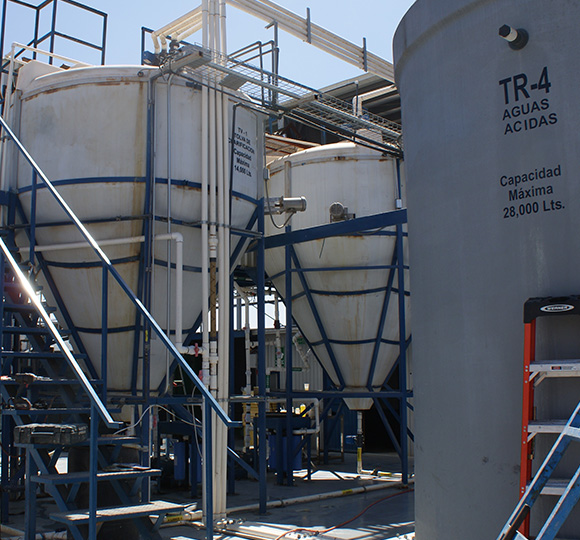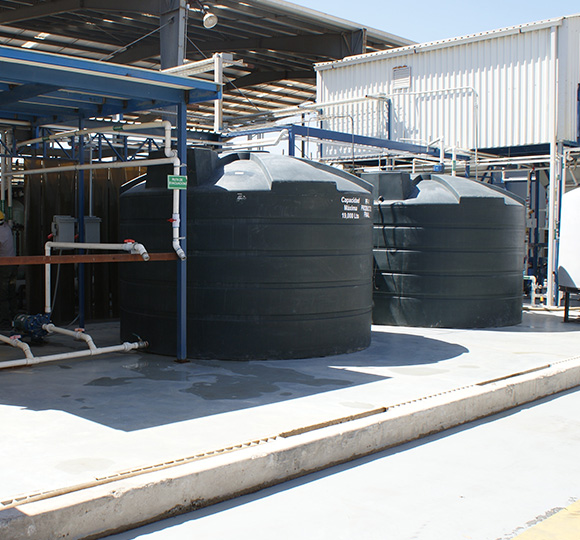Our main goal is to return each drop of water that we recycle to nature.
Water recycling has proven to be effective and successful in creating a new, reliable water supply without compromising public health. Non-potable reuse is a widely accepted practice that will continue to grow.
As water energy demands and environmental needs grow, water recycling will play a bigger role in our overall supply. By working together to overcome obstacles, water recycling, along with water conservation and efficiency, can help us to sustainably manage this vital resource.
Water pollution is an environmental problem that causes ecological damage of great importance. The negative effects in areas such as human health, the environment and the preservation of ecosystems, as well as its effects on agricultural production; It reinforces our commitment to treat water in such a way that it can be returned to the environment and can be safely reused.
We have authorizations for the reception, storage and treatment of contaminated water. These waters are identified according to their physicochemical characteristics to be treated in different processes.

80% of wastewater returns to the ecosystem without being treated or reused (UNESCO, 2017).

Main wastewater that can be treated in our facilities:
ACID WATER
Acidic water is one of the main sources of pollution in the industry. If it’s not treated properly and in a timely manner, it could cause irreversible damage to the environment. In the treatment of acidic water, we use physicochemical processes for pH adjustment, clarification and precipitation of solids, and also ozonation and reverse osmosis processes that eliminate odors, colors and cloudy appearance. The treated water will be reused in irrigation or other industrial processes.
ALKALINE WATER
Alkaline water is inherent in the industry as part of its production process, hence the need to treat and avoid contamination. This water, like the acidic one, is treated through physicochemical procedures such as pH adjustment, clarification and precipitation of solids to remove contaminants. In addition, ozonation and reverse osmosis processes are applied. The treated water will be ready to reuse in industrial processes.
WATER WITH HYDROCARBONS
Water contaminated with grease, oil and hydrocarbons is treated through physicochemical processes with the aim of removing pollutants such as organic material and minerals using ozonation and reverse osmosis systems. The treated water will be ready to reuse.
WATER WITH HEAVY METALS
The use of metals in industrial processes has allowed a high concentration of potentially toxic heavy metals to be emitted into the atmosphere and released into aquatic and terrestrial environments. Through chemicals such as flocculants and coagulants, the precipitation of solid contaminants is carried out for clarification. Through the ozonation system, color, odor and turbidity are eliminated. Finally, water is run through reverse osmosis system to remove any other contaminants. The treated water can be reused in industrial processes.

